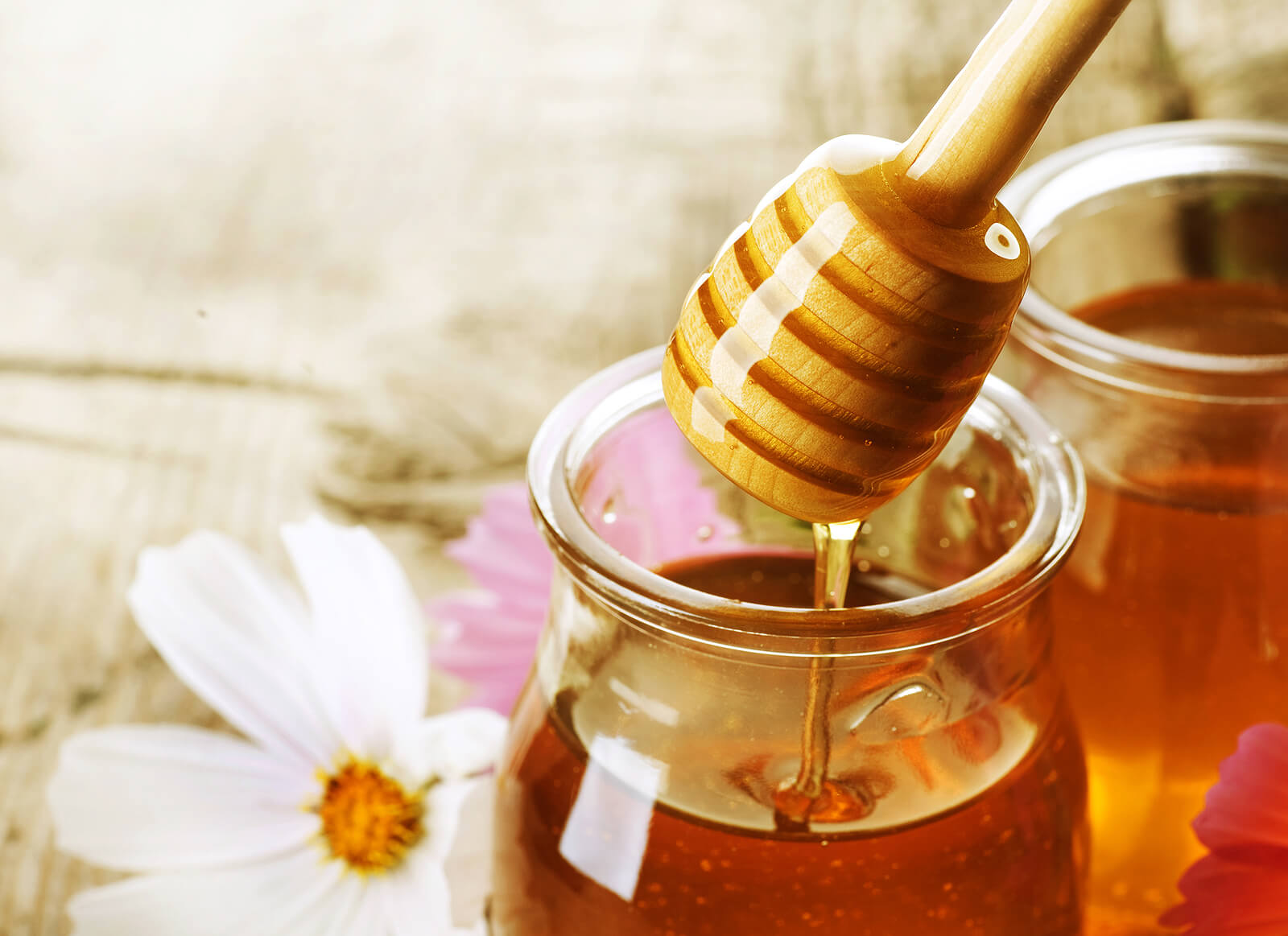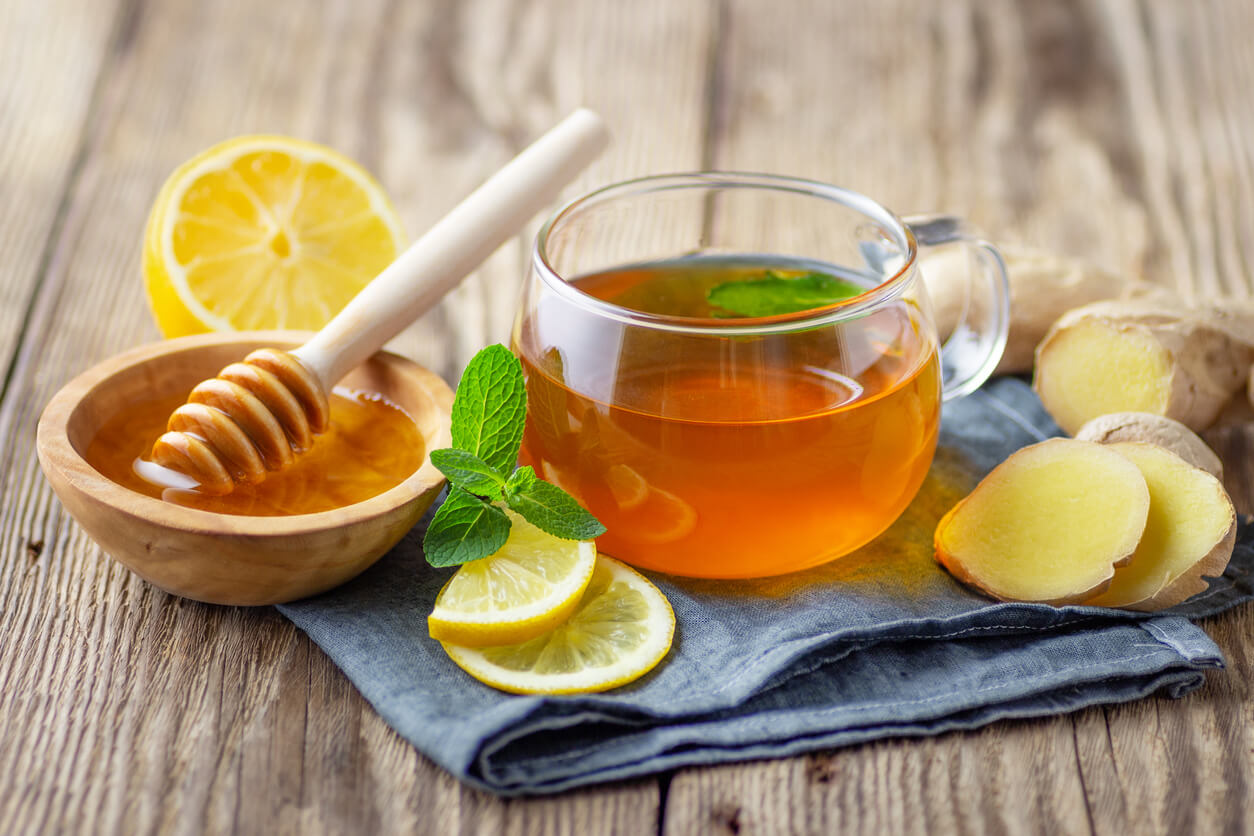4 Benefits of Honey for Children

Are you aware of the benefits of honey for children? Honey is a food that can produce a number of advantages in children if consumed in moderation. However, it isn’t recommended for children under 1 year of age. Otherwise, a potentially serious disease could develop, known as infant botulism.
Before starting, we must emphasize that the intake of simple sugars in the diet must be moderate and controlled. These nutrients can rapidly increase blood glucose levels. If this happens repeatedly, it could generate some metabolic dysfunctions, such as diabetes.
Having said all this, we’re going to tell you about the benefits of honey for children. Don’t miss it!
Know 4 benefits of honey for children
Did you know that honey is beneficial for children’s bodies? Of course, it’s best to always opt for an organic variety, which contains both royal jelly and propolis inside. Both elements have been well studied and their virtues have been demonstrated.

1. It contributes to preventing anemia
Honey of the forest has iron in its interior, a mineral whose deficit can cause anemia. However, we must emphasize that the nutrient has a rather low absorption rate, and to enhance it, it’s better to consume it with a dose of vitamin C. This is evidenced by research published in the Annals of the New York Academy of Sciences.
It’s worth mentioning that iron can also be obtained from foods of animal origin and in this case, its bioavailability is superior. For this reason, a varied diet is recommended to avoid anemia, and if symptoms appear, it’s best to consult a specialist.
2. Improves nighttime rest
Acacia honey is a source of magnesium, a nutrient that has been shown to have a positive effect on the ability to rest, especially when there are disorders associated with sleep. Its results are further enhanced when combined with melatonin, although this medication must be prescribed by a physician.
What’s clear is that ensuring a good night’s rest is key to promoting good growth. During childhood, tissue anabolism increases, and several recovery and cleansing processes are experienced daily. Many toxic metabolites produced during the day are eliminated during the night, so it’s key for children to get a good night’s sleep.
3. Increases the feeling of vitality
This is a typical property of honey containing royal jelly, a high-quality product. It not only helps to avoid the feeling of tiredness, especially in times of stress or change of season, but also increases the vitality of children. This translates into a higher rate of physical activity and better performance in daily activities.
4. Prevents some respiratory problems
Traditionally, it’s been suggested that regular consumption of honey could help prevent the development of infectious diseases affecting the respiratory tract. This is mainly due to the presence of propolis, which boosts the functioning of the immune system. However, it’s also important to ensure a regular intake of vitamin C and zinc to achieve this purpose.

Enjoy honey with your children and fill them with energy
As you’ve seen, the consumption of honey in moderate amounts can provide many health benefits to children. It’s best not to abuse it, as it’s a product that contains a large amount of simple sugars. Similarly, it’s important to ensure regular physical exercise to limit the impact of carbohydrates on blood sugar levels and to protect the functioning of the metabolism in the medium term.
Finally, it’s important to note that not all types of honey are the same. Different varieties are available to the public in supermarkets. As much as possible, it’s essential to give priority to organic honey because it has a higher quality nutritional profile than industrial honey.
Are you aware of the benefits of honey for children? Honey is a food that can produce a number of advantages in children if consumed in moderation. However, it isn’t recommended for children under 1 year of age. Otherwise, a potentially serious disease could develop, known as infant botulism.
Before starting, we must emphasize that the intake of simple sugars in the diet must be moderate and controlled. These nutrients can rapidly increase blood glucose levels. If this happens repeatedly, it could generate some metabolic dysfunctions, such as diabetes.
Having said all this, we’re going to tell you about the benefits of honey for children. Don’t miss it!
Know 4 benefits of honey for children
Did you know that honey is beneficial for children’s bodies? Of course, it’s best to always opt for an organic variety, which contains both royal jelly and propolis inside. Both elements have been well studied and their virtues have been demonstrated.

1. It contributes to preventing anemia
Honey of the forest has iron in its interior, a mineral whose deficit can cause anemia. However, we must emphasize that the nutrient has a rather low absorption rate, and to enhance it, it’s better to consume it with a dose of vitamin C. This is evidenced by research published in the Annals of the New York Academy of Sciences.
It’s worth mentioning that iron can also be obtained from foods of animal origin and in this case, its bioavailability is superior. For this reason, a varied diet is recommended to avoid anemia, and if symptoms appear, it’s best to consult a specialist.
2. Improves nighttime rest
Acacia honey is a source of magnesium, a nutrient that has been shown to have a positive effect on the ability to rest, especially when there are disorders associated with sleep. Its results are further enhanced when combined with melatonin, although this medication must be prescribed by a physician.
What’s clear is that ensuring a good night’s rest is key to promoting good growth. During childhood, tissue anabolism increases, and several recovery and cleansing processes are experienced daily. Many toxic metabolites produced during the day are eliminated during the night, so it’s key for children to get a good night’s sleep.
3. Increases the feeling of vitality
This is a typical property of honey containing royal jelly, a high-quality product. It not only helps to avoid the feeling of tiredness, especially in times of stress or change of season, but also increases the vitality of children. This translates into a higher rate of physical activity and better performance in daily activities.
4. Prevents some respiratory problems
Traditionally, it’s been suggested that regular consumption of honey could help prevent the development of infectious diseases affecting the respiratory tract. This is mainly due to the presence of propolis, which boosts the functioning of the immune system. However, it’s also important to ensure a regular intake of vitamin C and zinc to achieve this purpose.

Enjoy honey with your children and fill them with energy
As you’ve seen, the consumption of honey in moderate amounts can provide many health benefits to children. It’s best not to abuse it, as it’s a product that contains a large amount of simple sugars. Similarly, it’s important to ensure regular physical exercise to limit the impact of carbohydrates on blood sugar levels and to protect the functioning of the metabolism in the medium term.
Finally, it’s important to note that not all types of honey are the same. Different varieties are available to the public in supermarkets. As much as possible, it’s essential to give priority to organic honey because it has a higher quality nutritional profile than industrial honey.
All cited sources were thoroughly reviewed by our team to ensure their quality, reliability, currency, and validity. The bibliography of this article was considered reliable and of academic or scientific accuracy.
- Lynch, S. R., & Cook, J. D. (1980). Interaction of vitamin C and iron. Annals of the New York Academy of Sciences, 355, 32–44. https://doi.org/10.1111/j.1749-6632.1980.tb21325.x
- Cao, Y., Zhen, S., Taylor, A. W., Appleton, S., Atlantis, E., & Shi, Z. (2018). Magnesium Intake and Sleep Disorder Symptoms: Findings from the Jiangsu Nutrition Study of Chinese Adults at Five-Year Follow-Up. Nutrients, 10(10), 1354. https://doi.org/10.3390/nu10101354
This text is provided for informational purposes only and does not replace consultation with a professional. If in doubt, consult your specialist.








